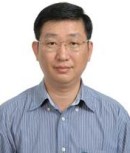
Plenary Lecture
Applying Complexity Theory to Make Sense of The Curriculum of Emerging Technology

Professor Lung-Hsing Kuo
National Kaohsiung Normal University
Taiwan, R.O.C.
E-mail: admi@nknucc.nknu.edu.tw
Abstract: Complexity theory provides a way of examining and making sense of complex natural and social systems. Complexity refers to the condition of the universe which is integrated and yet too rich and varied for us to understand in a simple mechanistic ways. Complexity deals with emergence, innovation, learning and adaptation. Learning in the context of an emerging technology is rich and complex. This paper would be presented with examples of applying systems thinking developed from complexity theory to teaching and learning situations in emerging technology under High-Scope Project. The conceptual framework developed by Ralph Stacey and colleagues would be use to show how certain types of curricula might engage with learning in the unstable and unpredictable zone of complexity which lies somewhere between the world of rational planning and management and chaos. Emerging technology can be devised within the mindsets and behaviours of the zone of stability or the zone of complexity but they are fundamentally different in their conception. As an oversimplification, in the zone of stability people are told what they need to know and be able to do in the context of a particular technology education. This contrasts with the approach used in the zone of complexity where people are encouraged to identify for themselves what they need to know and what they need to be able to do to achieve an objective and they create or adapt the processes to do so. Curricula can be created in a way that enables both approaches to learning to be utilised.
Brief Biography of the Speaker: Dr. Lung-Hsing Kuo is the Director of the Research Center for Teacher Career Professional Development in National Kaohsiung Normal University. He received his Master in Education (1990~1993) and Ph. D. in Education (1993~1997) from National Kaohsiung Normal University. He specialized in Educational database, Education issues, Information and Society, Humanities and Technologies. And, he is also the COO of Nationwide Teacher In-service Education Information Web, Taiwan, R.O.C. ' http://inservice.edu.tw ' , Chief editor of Yearbook of Teacher Education Statistics Republic of China (2005-2010) and Chief editor of Yearbook of In-service Teacher Education Statistics Republic of China (2008-2010). He is the author of about 90 papers published in international journals and conference proceedings, and invited book chapters.